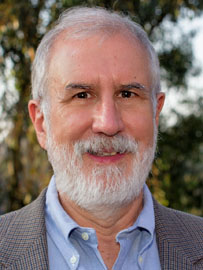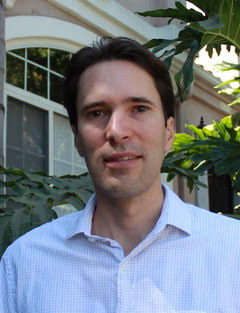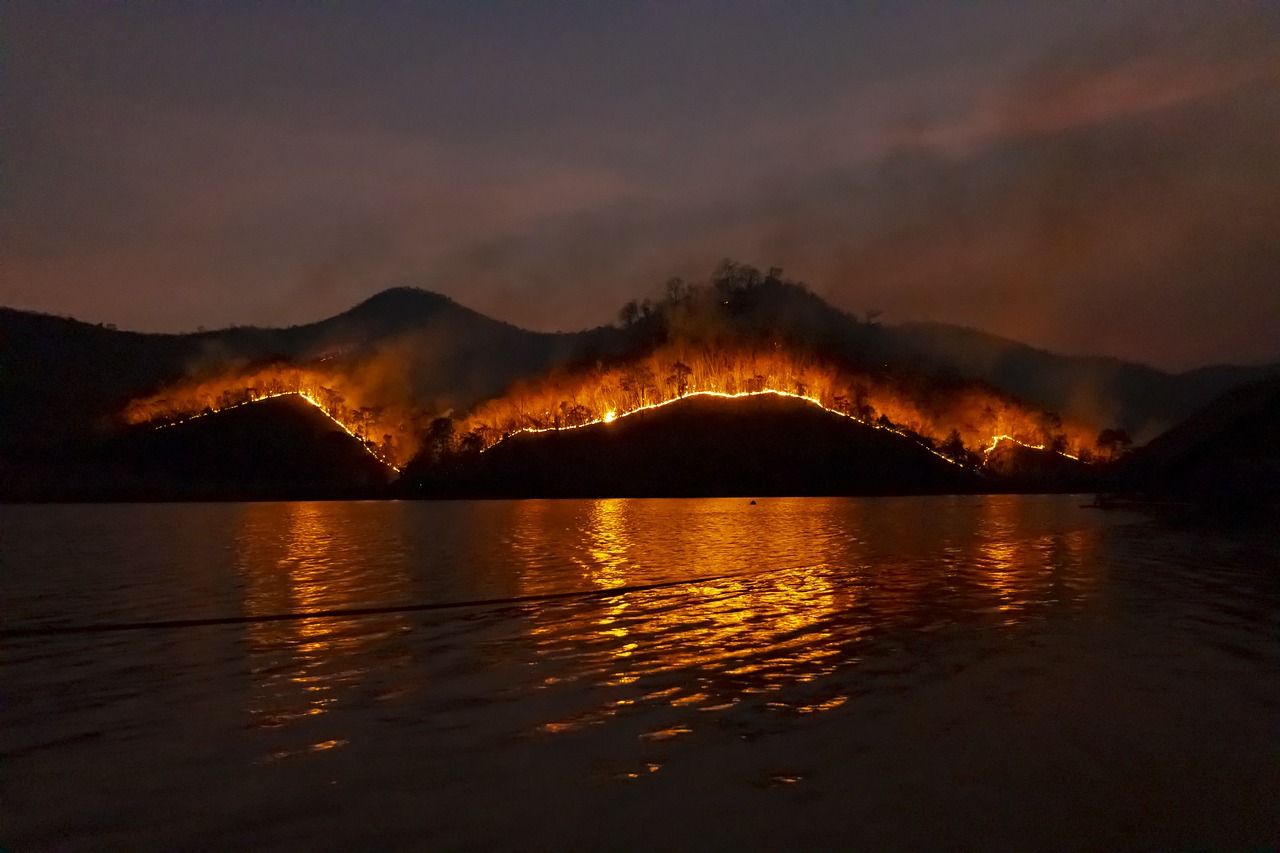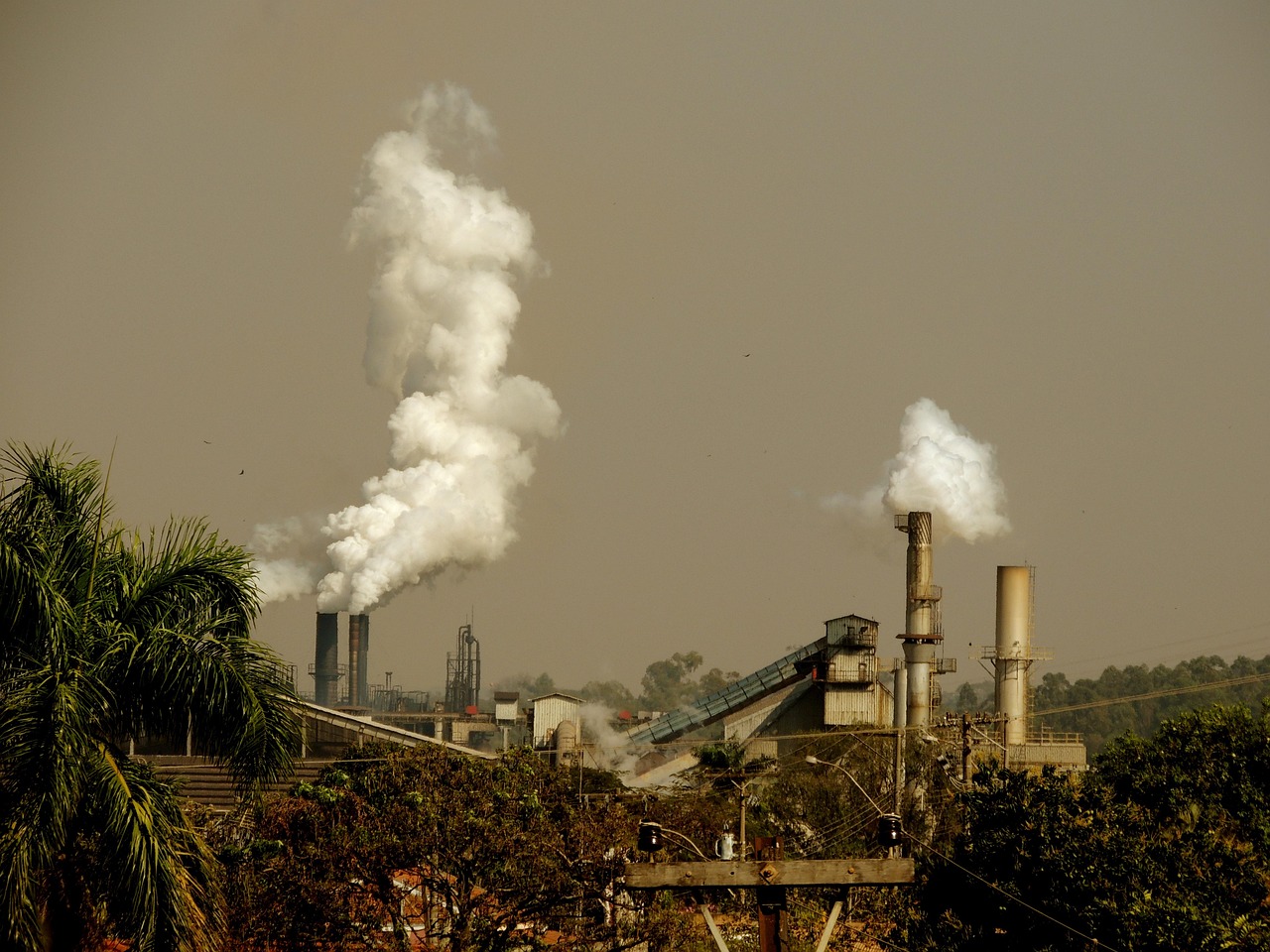Research Initiatives
- Affordable Housing
- Anti-Poverty Policy
- Energy and Environmental Policy
- Entitlement Program Reform
- Health System Performance
- State and Local Government Performance




Energy and environmental policy pose a number of unique challenges with wide-ranging implications. While gas prices and the cost of home heating fuels have immediate effects on household budgets, wildfires are impacting the price and availability of homeowners’ insurance, pollution has both short- and longer-run health consequences, and climate change poses long-run challenges.
Against this backdrop, there is pressing need for research to address issues including:
 Mark Jacobsen has written a number of important papers on the effects of vehicle fuel efficiency standards, tailpipe air pollution rules, vehicle retirement, and electricity pricing. This includes research published in the Quarterly Journal of Economics (joint with James M. Sallee, Joseph S. Shapiro, Arthur van Benthem) on air pollution and tailpipe rules. His work on fuel economy standards and safety was published in American Economic Journal: Applied Economics. In a paper in Science, Mark and a number of co-authors highlight important conceptual challenges in the way the Environmental Protection Agency evaluates changes in fuel economy standards. His work on the efficiency gains associated with real-time electricity pricing has been published in the Journal of Political Economy (joint with Christopher R. Knittel, James M. Sallee, and Arthur van Benthem). In research published in the American Economic Review, he has also studied the distributional and efficiency consequences of increases in U.S. gasoline taxes (joint with Antonio M. Bento, Lawrence H. Goulder, and Roger H. von Haefen). In additional research published in the American Economic Review (joint with Arthur van Benthem), Mark has studied the effects on pollution of policies that either intentionally or unintentionally affect vehicle retirements and longevity.
Mark Jacobsen has written a number of important papers on the effects of vehicle fuel efficiency standards, tailpipe air pollution rules, vehicle retirement, and electricity pricing. This includes research published in the Quarterly Journal of Economics (joint with James M. Sallee, Joseph S. Shapiro, Arthur van Benthem) on air pollution and tailpipe rules. His work on fuel economy standards and safety was published in American Economic Journal: Applied Economics. In a paper in Science, Mark and a number of co-authors highlight important conceptual challenges in the way the Environmental Protection Agency evaluates changes in fuel economy standards. His work on the efficiency gains associated with real-time electricity pricing has been published in the Journal of Political Economy (joint with Christopher R. Knittel, James M. Sallee, and Arthur van Benthem). In research published in the American Economic Review, he has also studied the distributional and efficiency consequences of increases in U.S. gasoline taxes (joint with Antonio M. Bento, Lawrence H. Goulder, and Roger H. von Haefen). In additional research published in the American Economic Review (joint with Arthur van Benthem), Mark has studied the effects on pollution of policies that either intentionally or unintentionally affect vehicle retirements and longevity.
 Judson (Judd) Boomhower has written a number of recent influential papers on the economics of adaptation to climate change. Several studies in this research agenda focus on the economics of wildfire risk. His recent work on California's wildfire building codes has been accepted at the Journal of Political Economy (joint with Patrick Baylis). He has also published a paper in Science on adaptation to wildfire property risk. His research on the incidence of wildfire suppression has been published in American Economic Journal: Applied Economics (joint with Patrick Baylis). In the Proceedings of the National Academy of Sciences, he has published research quantifying the health impacts of wildfire smoke (joint with Jeff Wen, Sam Heft-Neal, Marshall Burke, and Patrick Baylis). Judd has also published research in the American Economic Review on the effects of bankruptcy protections on the activities of resource extraction firms.
Judson (Judd) Boomhower has written a number of recent influential papers on the economics of adaptation to climate change. Several studies in this research agenda focus on the economics of wildfire risk. His recent work on California's wildfire building codes has been accepted at the Journal of Political Economy (joint with Patrick Baylis). He has also published a paper in Science on adaptation to wildfire property risk. His research on the incidence of wildfire suppression has been published in American Economic Journal: Applied Economics (joint with Patrick Baylis). In the Proceedings of the National Academy of Sciences, he has published research quantifying the health impacts of wildfire smoke (joint with Jeff Wen, Sam Heft-Neal, Marshall Burke, and Patrick Baylis). Judd has also published research in the American Economic Review on the effects of bankruptcy protections on the activities of resource extraction firms.
 Joshua (Josh) Graff-Zivin is widely viewed as the founder of a blossoming field that examines the impacts of pollution on labor productivity and human capital more broadly. His research on the impacts of pollution on labor productivity across a range of sectors has been published in the American Economic Review (joint with Matthew Neidell); the American Economic Journal: Applied Economics and the American Economic Journal: Economic Policy (both papers joint with Tom Y. Chang, Tal Gross, and Matthew Neidell) among many others. His work on the impacts of pollution on cognitive development has been published in Journal of the Association of Environmental and Resource Economists (joint with Prashant Bharadwaj, Matthew Gibson, and Christopher Neilson) and the Journal of Development Economics (joint with Tong Liu, Yingquan Song, Qu Tang, and Peng Zhang). In research published in the Journal of Labor Economics (joint with Matthew Neidell), he has also studied the impacts of extreme temperature on labor supply. He similarly studied the effects of extreme temperatures on student test scores in research published in the Journal of the Association of Environmental and Resource Economists (joint with Solomon Hsiang and Matthew Neidell). Josh has served on the Environmental Protection Agency’s Science Advisory Board and on the Scientific Advisory Board for the California South Coast Air Quality Management District.
Joshua (Josh) Graff-Zivin is widely viewed as the founder of a blossoming field that examines the impacts of pollution on labor productivity and human capital more broadly. His research on the impacts of pollution on labor productivity across a range of sectors has been published in the American Economic Review (joint with Matthew Neidell); the American Economic Journal: Applied Economics and the American Economic Journal: Economic Policy (both papers joint with Tom Y. Chang, Tal Gross, and Matthew Neidell) among many others. His work on the impacts of pollution on cognitive development has been published in Journal of the Association of Environmental and Resource Economists (joint with Prashant Bharadwaj, Matthew Gibson, and Christopher Neilson) and the Journal of Development Economics (joint with Tong Liu, Yingquan Song, Qu Tang, and Peng Zhang). In research published in the Journal of Labor Economics (joint with Matthew Neidell), he has also studied the impacts of extreme temperature on labor supply. He similarly studied the effects of extreme temperatures on student test scores in research published in the Journal of the Association of Environmental and Resource Economists (joint with Solomon Hsiang and Matthew Neidell). Josh has served on the Environmental Protection Agency’s Science Advisory Board and on the Scientific Advisory Board for the California South Coast Air Quality Management District.
 Richard Carson is one of the world’s most cited environmental and natural economists. He is best known for his work on the development of contingent valuation, a survey-based approach to determining the monetary value of public goods that do not have market prices. Some of his most cited contributions in this area include a seminal book, a user’s guide, and a chapter for the Handbook of Environmental Economics. The approach plays a key role in benefit-cost analyses and project evaluations, and has been implemented in over 120 countries across thousands of studies. Richard served as the government’s principal economic investigator on the Exxon Valdez and BP Deepwater Horizon oil spills. He is a frequent contributor to a broad set of general interest scientific journals, economics journals, the primary energy, environmental and natural resource field journals, as well as journals that publish research in econometrics, experimental design, health policy, management science, marketing research, political science, risk analysis, and survey research methodology. Richard is also well known for his work on water resource management, for an assessment of the benefits of the renewal of the U.S. Clean Water Act, and for the role played by wetlands in reducing property damage from hurricanes. He has also worked on large scale forecasting projects including projecting Chinese carbon dioxide emissions, the responsiveness of electric vehicle acquisition/use to California’s policies, and the temperature responsiveness of COVID-19 transmission.
Richard Carson is one of the world’s most cited environmental and natural economists. He is best known for his work on the development of contingent valuation, a survey-based approach to determining the monetary value of public goods that do not have market prices. Some of his most cited contributions in this area include a seminal book, a user’s guide, and a chapter for the Handbook of Environmental Economics. The approach plays a key role in benefit-cost analyses and project evaluations, and has been implemented in over 120 countries across thousands of studies. Richard served as the government’s principal economic investigator on the Exxon Valdez and BP Deepwater Horizon oil spills. He is a frequent contributor to a broad set of general interest scientific journals, economics journals, the primary energy, environmental and natural resource field journals, as well as journals that publish research in econometrics, experimental design, health policy, management science, marketing research, political science, risk analysis, and survey research methodology. Richard is also well known for his work on water resource management, for an assessment of the benefits of the renewal of the U.S. Clean Water Act, and for the role played by wetlands in reducing property damage from hurricanes. He has also worked on large scale forecasting projects including projecting Chinese carbon dioxide emissions, the responsiveness of electric vehicle acquisition/use to California’s policies, and the temperature responsiveness of COVID-19 transmission.
Stephie Fried’s research on the economics of climate adaptation has been published in the Review of Economic Studies. Her research quantifying the potential effects of carbon taxation on innovation has been published in American Economic Journal: Macroeconomics. In research published in the European Economic Review (joint with Gregory Casey and Matt Gibson), Stephie has explored the implications of distinguishing between firms that produce consumption goods vs. investment goods for understanding the impacts of climate damages. Her research on modeling the effects of rising temperatures on productivity growth (joint with Gregory Casey and Ethan Goode) has been published in the IMF Economic Review.
Jamie T Mullins has published research on the effects of pollution and on adaptation to climate change in numerous journals including the Journal of Health Economics (joint with Corey White), the Annual Review of Resource Economics (joint with Janet Currie, Joshua Graff Zivin, and Matthew Neidell), the American Journal of Agricultural Economics (joint with Prashant Bharadwaj), and the Journal of Public Economics (joint with Corey White).
Matt Gibson’s research on how firms alter their mix of pollution-generating inputs in response to regulation has been published in the Review of Economics and Statistics. His research on the effect of pollution exposure on fetal development was published in Journal of the Association of Environmental and Resource Economists (joint with Prashant Bharadwaj, Christopher Neilson, and Joshua Graff Zivin). Matt’s research on the effects of extreme temperatures on time use (joint with Teevrat Garg and Fanglin Sun) has been published in Journal of Economic Behavior and Organization. In research published in the Journal of Urban Economics (joint with Maria Carnovale), he has analyzed “The Effects of Road Pricing on Driver Behavior and Air Pollution.”
Yanjun (Penny) Liao has published a number of papers on issues related to the economics of climate adaptation. These include a study of the effects of flood insurance reforms that was published in the Journal of Housing Economics (joint with Hannah Hennighausen, Adam Pollack, and Christoph Nolte), as well as two studies of the effects of floods, hurricanes, and wildfires on local government budgets, one of which was published in Economics of Disasters and Climate Change (joint with Qing Miao, Michael Abrigo, and Yilin Hou) and one of which was published in the Journal of the Association of Environmental and Resource Economists (joint with Carolyn Kousky). Penny’s research on the effects of hurricanes on housing markets (joint with Joshua Graff Zivin and Yann Panassié) was published in the Journal of Environmental Economics and Management.
Judd Boomhower continues his research on homeowners insurance pricing and regulation in the face of escalating risk of wildfires and other severe weather events. He is also working to understand the long-run financial impacts of disaster property loss on affected households. He also continues to focus on the local economic and environmental impacts of oil and gas production.
Mark Jacobsen is expanding his research on real-time electricity pricing, looking at the performance of critical peak pricing as well as the potential for an innovative real-time policy utilizing price caps. In the automobile sector he is currently considering the impact of the EV transition, including vehicle weight gain and new safety technologies, on the fleet.
Josh Graff Zivin continues to be active in all of his research areas. His environmental research continues to foucs on the impacts of environmental stressors on human capital outcomes including new work on unemployment and hospital congestion. He has also turned his attention to the role of education in shaping environmental attitudes and preferences.
Richard Carson continues his research on modeling choice behavior in a survey context and has recent undertaken major surveys in Chile, Colombia, India, Kenya, Nigeria, South Africa, Tanzania, Vietnam and the United States.